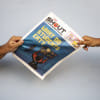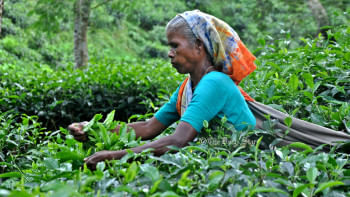Should rickshaws be restricted on main roads?

In 2019, the city corporations made the decision to ban rickshaws from three major roads in Dhaka. The reason? To manage and reduce traffic congestion. Here we are, three years later, and the traffic has not yet improved. In fact, it has taken a drastic turn for the worse in recent times.
It is easy to see where the government got the idea of banning rickshaws. The roads of this city are not wide enough to have space for separate lanes for different kinds of vehicles. As a result, the thoroughfares almost always witness traffic filled with a mixture of cars, buses, rickshaws, cycles, CNGs, etc.
While motorised vehicles are more or less able to match in speed and performance, rickshaws, being man-driven, are slower. Vehicles of different capacities being on the same roads like this can be seen as a hindrance to traffic flow. It might even be accused of being a cause of the breakdown of traffic discipline, and the overall haphazard and dangerous driving habits that we see on the roads.
However, what other option is there? The reason why rickshaws are so popular and occupy the roads to such a degree is that they are the best transport method for a large majority. The public transport system in our country is unreliable at best and for many, CNGs are only affordable if one has to make a long commute. Not only that, the deplorable conditions of the sidewalks make Dhaka an unwalkable city.
In truth, banning rickshaws or even restricting them to alleyways is not a feasible option at all. Most of these alleys are uncomfortably narrow and barely allow a file of rickshaws to pass through without becoming blocked. They are battered as a result of poor planning and rough use, and there is hardly any proper repair done to them. It is cruel to ask rickshaw-pullers to drive only through these alleys.
Furthermore, taking the convoluted routes through alleyways will most likely consume more of the rickshaw-pullers' time for each trip. However, since the destination is the same, their pay will continue to be the same as well. This will result in a disproportionate income for their labour. Many commuters will also probably face difficulties and opt for other methods of transport, once again impacting the livelihood of the rickshaw-pullers.
During the Covid-19 pandemic, the income of these rickshaw-pullers plummeted drastically as a result of the decreased number of passengers and many had to rely on loans to make ends meet, particularly since no relief was offered to them. Moreover, the pandemic resulted in the loss of jobs in both rural and urban areas. Many of the people who lost these jobs are now taking up the job of pulling rickshaws in Dhaka. This in turn has led to further oversaturation in an already saturated market, thus, it is harder than ever for rickshaw-pullers to make a proper livelihood.
From our privileged position, it is easy to opine on what should and should not be done. However, the people who are driving these rickshaws are in a different socioeconomic situation than us. Most of them cannot afford to entertain any ideas of such restrictions. Thus, unless a proper alternative mode of income can be found for these people and an alternative method of transport for commuters, restrictions simply cannot be imposed on rickshaws.
Zaima is a struggling student, a failed guitarist and a poet in need of better poetic ideas. Send her your sympathies at [email protected].

 For all latest news, follow The Daily Star's Google News channel.
For all latest news, follow The Daily Star's Google News channel. 









Comments